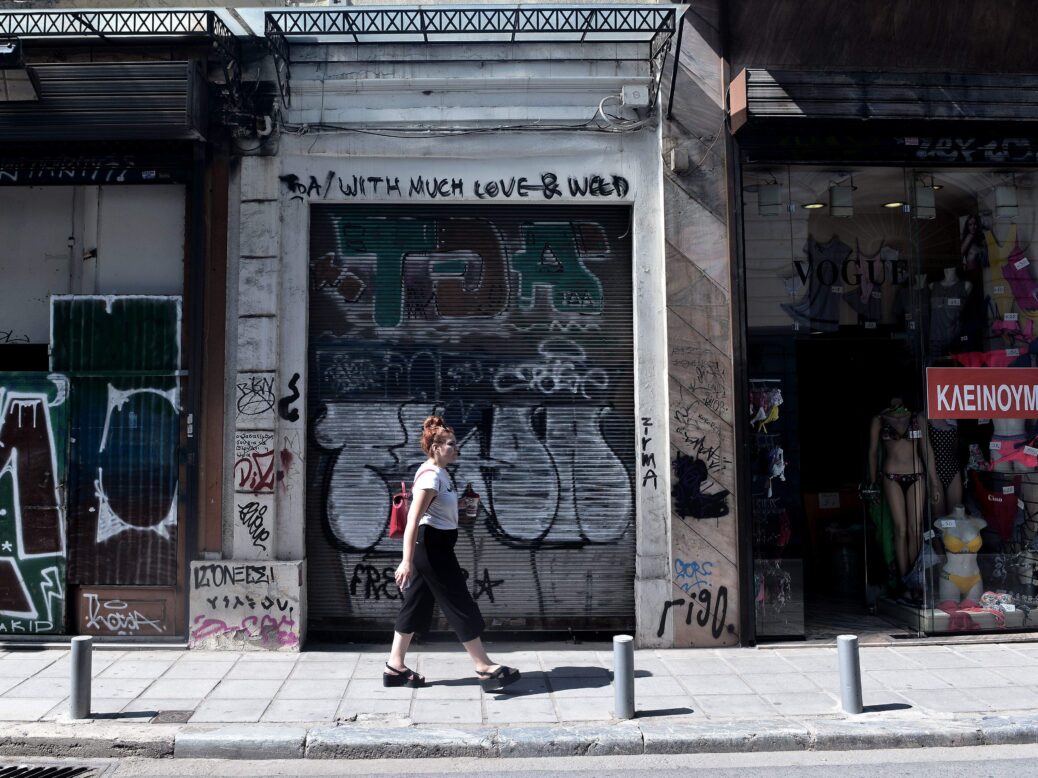
Alexis Tsipras probably imagined the scene rather differently. In advance of Greece’s exit from the EU bailout programme on 20 August, the country’s youngest prime minister since 1865 (he entered office aged 40) was rumoured to be planning a large fiesta to mark the end of a decade of misery and turmoil. But last month’s apocalyptic wildfires, which caused 96 deaths and fuelled anger with the political establishment, meant such an occasion was deemed inappropriate.
Instead, standing in front of the harbour in the island of Ithaca, where Odysseus ended his long journey home from Troy, Tsipras announced the end of Greece’s own saga. “The bailouts of recession, austerity and social desertification are finally over,” he declared. “We have left the Symplegades behind.” The metaphor of the mythological Cynean Rocks, which clashed together whenever a vessel sought to pass through them, was an interesting choice. Jason and the Argonauts lost part of their stern while making the crossing; Greece has certainly lost more than that.
“In a sense, these past eight years have been the end of politics in Greece,” said Yiannis Mavrogiorgos, 37, who works in advertising. “Mnimonio [the EU memorandum] became the ultimate wedge issue, simplifying almost every public policy discussion into a single, simple, moronic question: ‘are you for or against it?’” he added.
Greek society has rarely been more polarised: the radical, anti-austerity party Syriza, which entered office in 2015 after the collapse of the traditional centre-left, has struggled to meet heightened expectations.
“Eight years since the crisis, we’re nowhere near the way things were, nowhere near the reforms that our peers take for granted. Eight years later, we’re nowhere,” Mavrogiorgos lamented.
Iason Athanasiadis, 39, a UN worker who has returned to Greece after years abroad, shared Mavrogiorgos’s pessimism. He spoke of a generation of Greeks with no prospects, often forced to work in the only industry that seems to be thriving: tourism. “Athenians, pummelled by the crisis, turned themselves into Airbnb hosts, but the scale of those joining what was literally the only gig in town was such that prices fell through the floor… They survived on a dripfeed of a few euros that allowed them and their families to keep going.
“I also did it for a few months, before finding more meaning in returning to my UN political mission in Libya,” Athanasiadis concluded, echoing what many young Greeks, who previously dreamed of returning home, now say.
“There is a delay between economic indexes recovering and society seeing the benefits,” said Giorgos Pagoulatos, professor of European policy and economics at the University of Athens. “Unemployment needs to go down, the emigration from the country needs to stop and productivity needs to increase. Society will need many years to feel safe and hopeful again.”
Although Greece has now achieved a primary budget surplus (which excludes interest payments) and returned to economic growth (forecast to be 1.9 per cent this year), the scars of austerity run deep.
The population has fallen by 3 per cent since 500,000 people, mostly the young, have emigrated and birth rates declined. Unemployment still stands at over 20 per cent, while youth joblessness is 43.6 per cent – the worst rate in the EU. The country’s GDP, which shrank by 25 per cent, is still a quarter below its 2007 level, with investment around two thirds lower. And the national debt remains above 180 per cent of GDP, forcing the government to agree to run primary surpluses of 3.5 per cent of GDP until 2022, and an average of 2.2 per cent until 2060. Should growth fall below expectations, or borrowing exceed them, a further bailout could be required (even the IMF has warned that the conditions are too onerous).
And as the economic shock subsides, a society in deep confusion and depression is emerging from the smoke. Few believe that the government will have the professed freedom to chart a new course. “While the memorandum is over, Greece will remain constrained in many ways,” Pagoulatos warned.
But Syriza’s Nikos Xydakis, the deputy foreign minister, is insistent that his party can prove that the pain was not for nothing.
“We aim to improve working conditions immediately,” he told me. “We will increase the minimum wage and restore collective bargaining, following the example of the [left-wing] Portuguese government. These are measures to provide an immediate psychological lift to the people.”
The government’s plans are aimed not merely at improving people’s personal finances, Xydakis said, but at something much deeper: restoring faith in national politics after years of EU rule by diktat. “We will try with our actions to restore the idea that a democratically elected government can legislate in its people’s interests. It’s a step we need to take.”
And it’s this aspect that perhaps constitutes the biggest challenge for Greece: faced with a delegitimised left and a right-wing opposition that has embraced the nationalist playbook of Hungary and Austria, many voters feel disenfranchised.
“It’s a trauma for Greek society and politics,” Xydakis said. “The left had to show after 2015 that it was pragmatic. But it was a painful pragmatism: we had to push through policies imposed from abroad. Now we must show that we can address the people’s real needs. And to show that we have a vision, inspiration and ideas for the future beyond the next elections.”
Will this be enough to inspire positivity among Greeks? Voters on the streets see only a political class in disarray and hold little hope for the future. “One can only wonder what is going to happen to us without mnimonio,” Mavrogiorgos says, with the ironic Greek style that thrives in morbid times. “It was, such as it was, a kind of solution.”
This article appears in the 22 Aug 2018 issue of the New Statesman, Will Labour split?






